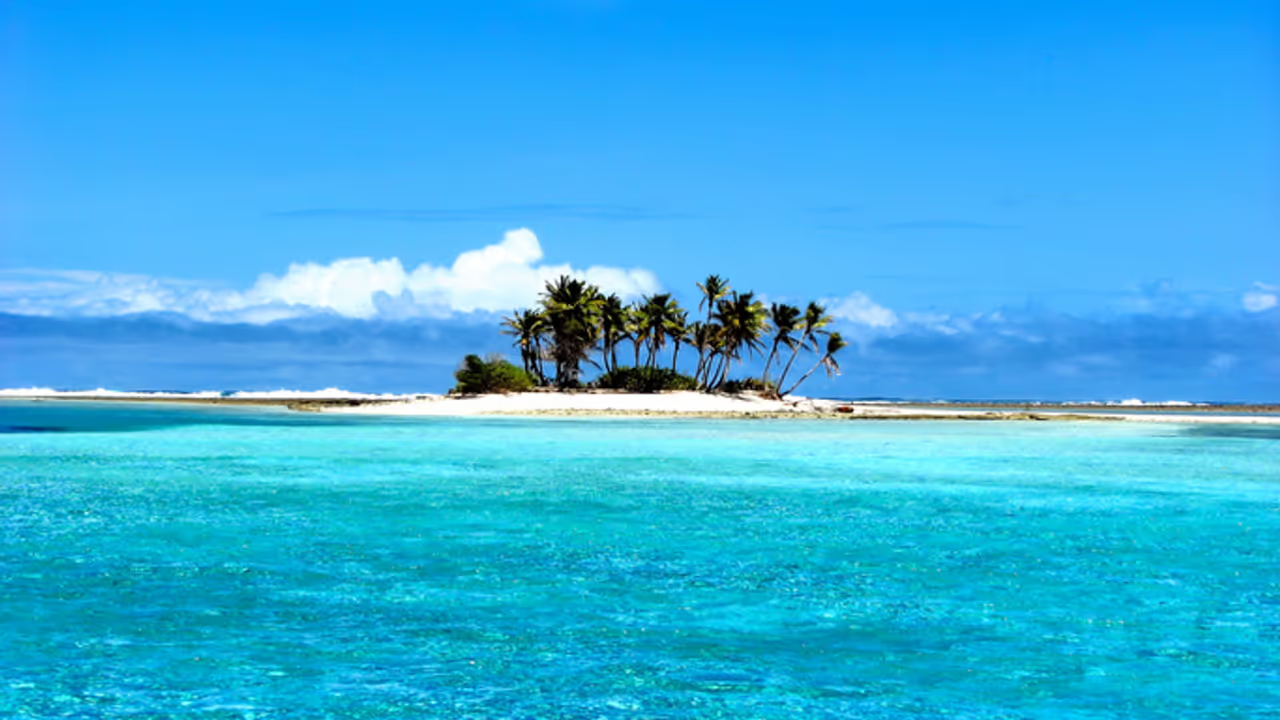The ocean supports life on Earth by regulating climate, feeding billions, and sustaining economies. But climate change is damaging it rapidly, endangering Small Island Nations and global stability. Protecting the ocean is now urgent.
For most people, the ocean is a place for vacations, Instagram-worthy sunsets, or seafood platters. But in reality, the ocean is a life-support system for both humans and marine life. It is deeply tied to the air we breathe, the climate we live in, the food we eat, and even the jobs we hold. And as climate change intensifies, the ocean is struggling, especially for Small Island Developing States (SIDS) that depend on it the most, says United Nations' report.

Small islands, big risks
According to the United Nations, there are 57 Small Island Developing States with a combined population of 73.5 million. These include countries like Seychelles, Mauritius, Cabo Verde, Comoros, and São Tomé and Príncipe. In these regions, the ocean is more than scenery and it is everything. It provides food, employment, transportation, and identity.
Yet these very communities are now among the most vulnerable to sea level rise, coral bleaching, and stronger storms, all worsened by global warming. Despite having the smallest carbon footprints, they are on the frontlines of the climate crisis.
The ocean gives us oxygen
It’s a common belief that forests are the lungs of the Earth. While forests are vital, about 50% of the oxygen we breathe actually comes from the ocean, thanks to tiny organisms called phytoplankton that live near the surface and photosynthesize like plants.
In short: every second breath you take is possible because of the ocean.
Nature’s climate regulator
The ocean acts like Earth’s thermostat. It absorbs 90% of the excess heat caused by greenhouse gas emissions, helping to keep our planet’s climate stable. Ocean currents move heat from the equator to the poles and back again, shaping weather patterns and temperatures worldwide.
But with rising carbon emissions, the ocean is becoming dangerously overburdened. This imbalance is now driving sea level rise, more extreme weather, and damaged marine ecosystems.
Feeding billions, for now
More than 3 billion people rely on the ocean for food. In places like Seychelles and Mauritius, seafood is a major part of the diet and culture. Fish consumption per capita in Seychelles is one of the highest in the world, 59 kilograms per year, while 80% of Mauritians eat seafood at least once a week.
But overfishing, pollution, and habitat loss are threatening this food supply. Without sustainable practices, ocean-based food systems may collapse.
A $24 trillion global economy
The ocean is also a giant economic engine. It supports shipping, tourism, renewable energy, biotechnology, and more. According to the Commonwealth Action Group, the total value of the ocean’s assets is estimated at $24 trillion, with its economy expected to grow to $3 trillion by 2030.
Millions of jobs depend on a healthy ocean, from fishers to port workers to hotel staff. But unchecked pollution and warming seas threaten this economic lifeline.
A treasure trove of life
There are over 230,000 known marine species, with scientists believing millions more remain undiscovered. Coral reefs, often called “rainforests of the sea”, are rich ecosystems vital for marine biodiversity.
But these reefs are vanishing due to ocean acidification, warming waters, and pollution. When we lose coral reefs, we lose biodiversity, food security, and natural protection from storms.
The ocean and you
Even if you live far from the coast, the ocean shapes your life daily. It connects global trade, influences weather, and stabilizes Earth’s climate. But human activities, from plastic pollution to greenhouse gas emissions, are harming it deeply.
Yet the ocean continues to give.
Protecting the ocean is not just the job of scientists or island nations. Everyone can help, by cutting plastic use, choosing sustainable seafood, reducing carbon footprints, and supporting marine conservation.
A global call to action
The upcoming UN Ocean Conference is a critical moment. World leaders must adopt strong policies that preserve ocean health and ensure a fair future for island nations and coastal communities.
Because when we save the ocean, we’re really saving ourselves.


